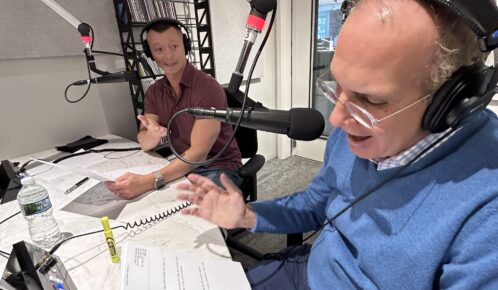Understanding how to claim emotional injury for a car accident can help you optimize your financial recovery. Following a car accident, you may be able to recover emotional distress car accident compensation if you can show how the crash caused emotional distress and trauma. Car accidents often involve a variety of economic damages such as medical bills and other financial losses, but they may also involve non-economic damages, such as emotional distress. Both types of damages warrant compensation in many cases if a negligent party led to the accident that caused them.
Table of Contents
Emotional Distress and Trauma Responses Following a Car Accident
Car accidents are distressing and traumatic for victims. An accident may cause a degree of fear that leads you to avoid riding in or operating a vehicle, or you may even struggle to complete daily tasks at home or at work.
There are different types of emotional distress and trauma that you may suffer after an accident. These could supplement or even trump physical injuries, depending on the circumstances. If you are the victim of an emotional injury in a car accident, you may be able to recover compensation for emotional distress, in addition to other damages resulting from a physical injury.
These types of emotional injuries could include:
Anxiety
Car accident victims may experience anxiety in a couple of different ways following an accident. They may associate specific reminders with the accident, such as loud noises, visuals, and other cues that trigger a level of anxiety. In other cases, victims may suddenly experience more generalized anxiety and be unaware that the trauma of the accident is what causes it.
This anxiety could lead to sleeplessness, persistent anxiety throughout the day, the fear of getting into a vehicle or driving again, and other issues that impact the victim’s life.
Depression
Depression is another potential emotional injury that car accident victims may sustain, often as a result of debilitating physical injuries. Car accident injury victims may suffer from disabilities, disfigurement, loss of consortium, and other losses that prevent them from enjoying their daily lives the way they could before the accident.
For instance, victims may fall into depression because of the inability to care for themselves and perform basic daily tasks without assistance.
Post-Traumatic Stress Disorder (PTSD)
Like other types of traumatic events, car accidents can lead to PTSD in some victims. Accidents are often serious and stand out as particularly jarring events, even if victims don’t sustain substantial physical injuries. They often occur when least expected and can leave a lasting mental imprint on victims long after the initial accident.
If a victim has PTSD after an accident, he or she may actively avoid any sounds, visuals, or other potential reminders of the accident. If you have PTSD, you may also experience flashbacks due to certain triggers, which could mentally take you back to the accident and essentially relieve the experience. Some victims may even experience physical sensations associated with the accident when triggered.
Like anxiety, PTSD could keep accident victims from growing comfortable driving or riding in vehicles again.
How to Claim Emotional Injury for a Car Accident
While emotional injuries may be just as real as physical injuries, they’re often more difficult to prove in car accident cases because they’re less visible and tangible to others. Emotional distress and trauma are psychological in nature and, while they may manifest physically, you will need to take certain steps to prove that you’re experiencing them as the result of an accident.
There are several ways you may be able to prove emotional injury after a car accident, including:
Showing How the Accident Led to the Emotional Injury
One key item you’ll need to prove is that the accident directly contributed to your emotional distress. This could involve showing how your life changed shortly after the accident because of emotional injury, from changes in your relationships with others to the inability to complete daily routines due to anxiety, depression, or PTSD. Additionally, you should begin seeking treatment for emotional injury as soon as possible and keep records of appointments with therapists and others.
Related Physical Injuries
Emotional injuries often translate into physical symptoms that may help you prove emotional distress. For example, anxiety and PTSD could lead victims to experience headaches, weight fluctuations, panic attacks, stomach ulcers, and insomnia in many cases.
Intensity
Emotional injuries of greater intensity will more effectively prove that you’re experiencing mental distress. For instance, you might have an easier time proving emotional injury if your distress and trauma have severely hindered your ability to function day to day, and you experience various physical symptoms.
Confirmation from Doctors and Others
Notes and prescriptions from doctors to diagnose and treat emotional injuries can also help prove them. If you see a mental health professional or another qualified specialist, ensure you maintain records of diagnoses, prescriptions, therapy sessions, and other documentation.
If you need help proving emotional distress, a car accident lawyer may be able to help you collect sufficient evidence and present it.
How Much Compensation Can You Claim for Emotional Injury After a Car Accident?
Every car accident case is different and involves varying factors, which is why it’s difficult to determine how much compensation for emotional distress you can receive after an accident.
The amount of compensation you’re able to recover will depend on the severity of injuries and other influencing elements that an attorney may help calculate. You will also need to know how to prove you are not at fault in a car accident, as shared fault could limit the amount of compensation you’re able to recover.
If you’re worried about how much a car accident lawyer costs, most work on a contingency basis. This means that they won’t charge you until they recover compensation. Your attorney can work with you to accurately calculate the amount of compensation you can receive for emotional and physical injuries.
Gathering evidence and documenting emotional distress will increase your chances of successfully filing a claim for emotional injuries.



